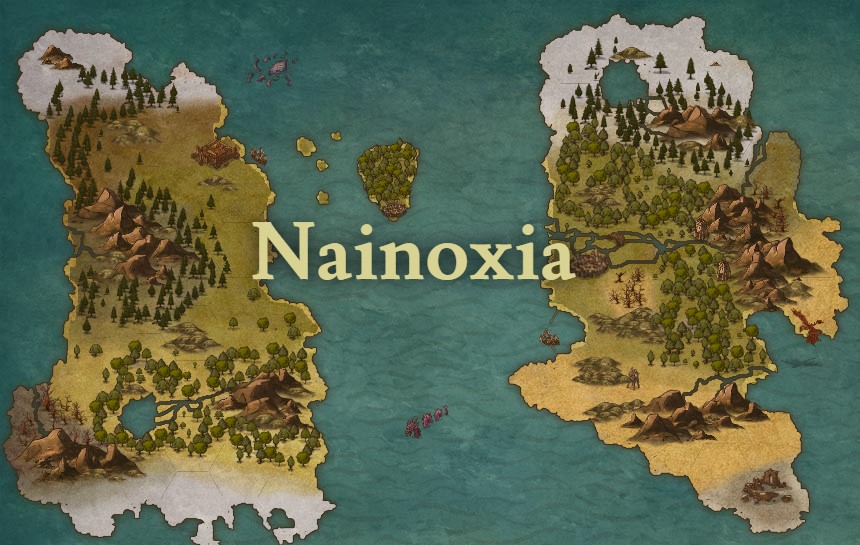Counts
The title of Count, one of the highest positions of power within the nobility, and the leader of an entire County containing between 3 and 6 baronies, who also usually hold their own court, with nobles vying for their favor and ear. A Count is the oldest capable male of the most powerful noble family in a County. Besides watching over the local Barons, a count also looks over the largest city in his County, where he is technically a Baron. As the Empire expands and new Baronies are installed, Counts are made by a local Duke in order to watch over the newly made Barons. The Baron of the most powerful city or town is chosen, and given the position of Count. Because of that, the position of Count is much more secure in the family than a Barons title.
Counts are figures that control points of importance within the Empire, a trade route, a large goldmine or a significant holy shrine. They also have a number of Barons under them who have to obey their orders. A count holds enough power to defend his territory from both inside and outside threats.
Legally they hold power over even Barons, and Lords and Ladies have no say when the Count makes a ruling. A counts decisions can also be enforced through the County, and with the help of local alliances they can hunt down large scale criminals over vast distances.
A Count's military powers also dwarf a Barons. They have the ability to raise much larger guard forces than a Baron, and also command Barons to increase or decrease their towns guards, as well as being able to command them to relocate some of their forces temporarily. Lastly a Count also has a small number of soldiers from the Imperial Army under his command, to protect the most valuable places and enforce his decisions. Lastly, through their influence and power, Counts can also call upon forces of the Inquisition and Adeptus Justicari, as well as being able to directly request temporary control of larger formations of the Army from a Duke.
Their political power is large, and they generally hold a tight grasp on the nobility of their counties, as well as keeping a close connection with the Churches. They can leverage their resources and power in their own court, as well as the court of the local Duke.
Counts are figures that control points of importance within the Empire, a trade route, a large goldmine or a significant holy shrine. They also have a number of Barons under them who have to obey their orders. A count holds enough power to defend his territory from both inside and outside threats.
Legally they hold power over even Barons, and Lords and Ladies have no say when the Count makes a ruling. A counts decisions can also be enforced through the County, and with the help of local alliances they can hunt down large scale criminals over vast distances.
A Count's military powers also dwarf a Barons. They have the ability to raise much larger guard forces than a Baron, and also command Barons to increase or decrease their towns guards, as well as being able to command them to relocate some of their forces temporarily. Lastly a Count also has a small number of soldiers from the Imperial Army under his command, to protect the most valuable places and enforce his decisions. Lastly, through their influence and power, Counts can also call upon forces of the Inquisition and Adeptus Justicari, as well as being able to directly request temporary control of larger formations of the Army from a Duke.
Their political power is large, and they generally hold a tight grasp on the nobility of their counties, as well as keeping a close connection with the Churches. They can leverage their resources and power in their own court, as well as the court of the local Duke.
Appointment
Because of the power of a Count, and how rare they are, it is very rare for the title of Count to leave a bloodline. It has been done via long political schemes, of a Lord conspiring for years to de-throne a Count and take his place, but such machinations are rarely done, and they are only allowed by the other powers if the count has proven himself unable to lead. Marrying into the family can also be a way to do that, if there are no male heirs to the position, however such marriages are always highly sought after, and always puppeteer-ed by powerful Lords and Ladies. Lastly, if a Counts bloodline is completely wiped out, the local Duke can appoint whoever they wish, such an event happens very rarely, and as such there is no standard procedure.
However, all upstarts looking for a way into the nobility should be careful, as the already existing nobles do not wish to dilute their power. It is not uncommon for those demanding titles to be found dead in their beds, the first and only victim of a mysterious illness, right after signing a paper giving all their possessions to an already existing noble.
However, all upstarts looking for a way into the nobility should be careful, as the already existing nobles do not wish to dilute their power. It is not uncommon for those demanding titles to be found dead in their beds, the first and only victim of a mysterious illness, right after signing a paper giving all their possessions to an already existing noble.
Type
Nobility, Hereditary
Form of Address
My Count / My Lord
Current Holders
Reports directly to
Related Organizations


